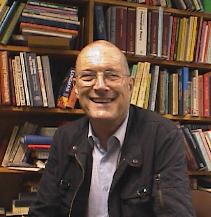DEPARTMENT OF SPEECH, HEARING & PHONETIC SCIENCES UCL Division of Psychology & Language Sciences |
 |
John Wells’s phonetic blog
|
|
| Monday 30 April 2007 | RichterSaturday’s minor earthquake in Kent meant that the newsreaders made several references to the Richter scale. As usual, they mostly pronounced it either [ˈrɪxtə] or [ˈrɪçtə]. But Charles Richter, the creator of the earthquale magnitude scale, was not from a German-speaking country, and the newsreaders’ otherwise admirable familiarity with German pronunciation is here misapplied. He was an American, born in Ohio. Being American, he naturally pronounced his name /ˈrɪktɚ/, and we should do the same (or, in the case of us non-rhotic speakers, as /ˈrɪktə/). This information is readily available from the BBC Pronunciation Unit and in the Oxford BBC Guide to Pronunciation. It is explained in some detail in LPD. But the newsreaders persist in their ignorance. (Sorry, I’m beginning to sound like a reader of the Daily Telegraph.) |
|
| Friday 27 April 2007 | Television newsreaders’ RP (iii)The remaining two variables investigated by Hannisdal in her dissertation (blog, yesterday and the day before) were these.
| |
| Thursday 26 April 2007 | Television newsreaders’ RP (ii)More findings from Hannisdal’s survey of newsreaders’ pronunciation (yesterday’s blog):
|
|
| Wednesday 25 April 2007 | Television newsreaders’ RPBesides the visit to China, my other overseas engagement during the last two weeks was a doctoral defence (or “disputation”) at the University of Bergen in Norway. I was one of the two “opponents” (examiners) of a PhD thesis by Bente Hannisdal entitled Variability and change in Received Pronunciation. This dissertation is a brilliant piece of work, which we had no hesitation in passing. Ms Hannisdal has collected a large number of recordings of British television newsreaders (thirty people; half of them men, half women; from the BBC, ITV and Sky channels; an hour of speech from each individual). This constitutes an extensive corpus of contemporary RP, and has enabled her to discover some interesting facts, not previously established, about this variety of English. Among them:
|
|
| Tuesday 24 April 2007 | Banded or bandied?Here is what was written in the Financial Times for 14-15 March, European edition. (I came across it on board the aircraft on the way home from Chengdu. This is my first blog entry to be composed, in advance, at a height of 35,000 feet or 10,000 m.)
What the author meant, of course, was bandied about, from the verb bandy about ‘to mention an idea, name, remark etc several times, especially in order to seem impressive’ (LDOCE). There is no verb band about. Bandy is one of the words that ends with the happY vowel, which we nowadays write /i/, representing the neutralization (non-distinction) of /iː/ and /ɪ/ in weak final position, and ranging phonetically between tense [i] and lax [ɪ]. The conditions for bandied and banded to be homophonous, as they presumably are for John Gapper, the author of this piece, are twofold. First, the happY vowel must be realized with a quality and quantity identical to those of /ɪ/, and secondly the past tense/past participle suffix -ed must be pronounced as /ɪd/, not as /əd/. Since my own pronunciation satisfies these two criteria, the words are homophonous for me, [ˈbændɪd]. I therefore have to be careful to spell each one appropriately. But Tony Blair, for instance, with his pervasive use of /ə/ in weak syllables, would presumably make a difference between them. So would anyone who has an [i]-like quality for the presuffixal happY vowel of bandied. Some speakers have both these characteristics. The trend is towards distinguishing the two words as [ˈbændid] bandied vs. [ˈbændəd] banded. Other relevant pairs are candied – candid, taxis – taxes, studied – studded, and even Billy’s – Bill is. In the first of these it is a matter not of an inflectional ending, but of the adjectival suffix -id. But this usually seems to agree with -ed. |
|
| Monday 23 April 2007 | Chengdu conferenceThe week before last I was in Chengdu in China to attend a conference on English Phonetics Teaching and Research. This was apparently the first such nationwide conference, and was attended by some sixty phoneticians and EFL teachers from all over China. They had been kind enough to invite me as a keynote speaker. I was impressed by the enthusiasm displayed on all sides. Those present felt strongly that it was urgent to improve the generally rather poor level of pronunciation among Chinese learners of EFL. They eagerly discussed teaching techniques and reported the various successful strategies they had used. My own view on this is that the key thing for the teacher of pronunciation is a combination of knowledge (i.e. phonetic understanding of what is required) and skill (i.e. the actor-like qualities that enable the teacher, through his/her performance, to enthuse the learners and bring out their best). Chengdu, a city of eleven million people, is the capital of Sichuan province. I found it bustling with economic vigour. Apartment blocks and motorways were being constructed on all sides just as much as in Hong Kong or Seoul. Mobile phones were everywhere. Chengdu is also a tourist centre. Two of the attractions I was able to visit were the Panda Breeding Research Centre, where I saw young pandas frolicking around and adults engaged in the more serious business of eating and sleeping, and the 70-metre high Buddha figure carved in the rock at nearly Leshan, surviving as the largest such figure in the world after the Taliban destroyed the ones at Bamiyan in Afghanistan. |
|
| Friday 6 April 2007 | Apical vowels againSince I shall be in China next week, I think it’s appropriate to return to the question of the Chinese (Mandarin) apical vowels and their symbolization. You will remember that Cheung’s proposal for the narrow IPA representation of the vowel in the sequences written in Hanyu Pinyin as si ci zi was [zɯ] and for that in the sequences written shi chi zhi [ʐɨ], with various other possibilities for those who pronounce them in slightly different ways: [z̞ɯ, z͡ɯ, z̞͡ɯ, ɯz] (or with [ɹ instead of z̞]) and [ɻɨ, ʐ͡ɨ, ɻ͡ɨ, ɨɻ] respectively. (There’s an important lesson here: the non-uniqueness of IPA representation of a particular speech ‘sound’.) The complexity of these phonetic representations can be interpreted as a shortcoming in the IPA alphabet. In fact sinologists — experts in Chinese — have long used the symbols ɿ for the alveolar, z-type vowel, and ʅ for the retroflex, ʐ-type one. Many sinologists, and many Chinese phoneticians, believe that these are official IPA symbols. But they’re not. However it strikes me that an easy way out of this problem would be for someone to propose to the new IPA Council (now in the course of being elected) that the symbols ɿ and ʅ be added to the Association’s alphabet. On the other hand we don’t really need new symbols: as phonemic symbols, /z̩/ and /ʐ̩/ would seem to be entirely adequate (or even /z/ and /ʐ/ without the syllabicity mark). If you would like to listen to the sounds in question, here are sound clips of si and shi (thanks to the University of Vermont’s Chinese program). | ɿ = z̩ ʅ = ʐ̩ |
| Thursday 5 April 2007 | That’s funnyQuite a common idiomatic intonation pattern in English consists of a fall on a the word That with the verb to be, followed by a rise on the complement. \That’s | /funny. This pattern is rather difficult to explain. The word that is merely anaphoric — it refers to some situation or thing already mentioned, rather as a pronoun does. But if we replace that by it, we cannot use the same tone pattern. * \It’s | /funny. Obviously, this is connected to the fact that the default for demonstratives is to be accented, whereas the default for pronouns is to be unaccented. But why is that so important that it is not merely accented, but carries a nuclear tone? We might wonder whether this pattern is not a fall plus rise but a fall-rise. ? \/That’s funny. But in this analysis, if the single nucleus is on the demonstrative, the words funny and good are deaccented, postnuclear — which would normally imply that they must be given (old), or repetitious, or predictable in the context, none of which is the case here. So that can’t be right. And in any case we would still be left with a difficult-to-explain nucleus on the demonstrative. Compare contrastive focus on that, with a genuine fall-rise: A: They’re 'both pretty \good. Unfortunately, I don’t think I discussed this intonational idiom in my English Intonation book. You may answer \That’s | a /pity. |
|
| Wednesday 4 April 2007 | Unaspirated /p t k/Every now and again I get emails from Chinese correspondents worried about the statement found in textbooks to the effect that English voiceless plosives, usually aspirated, are nevertheless unaspirated after /s/, as in spin, steam, skin. The statement is correct. There is an audible difference between the bilabial plosive in pin and that in spin. In the first it is aspirated, in the second it is unaspirated. This means that in the first there is a delay after the release of the bilabial closure before the onset of voicing for the vowel (the duration of this delay being known as ‘voice onset time’): [pʰɪn]. In the second there is no such delay: [sp⁼ɪn]. (The IPA offers no diacritic to mean ‘unaspirated’; here I shall show it by using a raised equals sign, though unless you’ve got Text Size set to pretty large you may not be able to see more than a raised hyphen.) It is difficult to hear the difference between unaspirated [p⁼ t⁼ k⁼] and devoiced [b̥ d̥ ɡ̊]. Theoretically it depends on the difference between fortis articulation, for [p⁼ t⁼ k⁼], and lenis articulation, for [b̥ d̥ ɡ̊]. But fortis-lenis is much easier to hear in fricatives and affricates, where it affects the volume of air flow and therefore the intensity of the turbulence, than it is in plosives. Whereas we like to think of the English plosives as being basically voiceless vs. voiced (despite positional devoicing), it is clear that the Chinese ones are aspirated vs. unaspirated. Their representation in Hanyu Pinyin may be p, t, k vs. b, d, g, but their phonetic representation is usually reckoned to be /pʰ tʰ kʰ/ vs. /p t k/. Mapping these onto English /p t k/ vs. /b d g/ respectively works well, except for the position after /s/. In that position Chinese EFL learners should be encouraged to use the sound that they usually map onto the English voiced plosive. It may be interesting to note that when English words are borrowed into Welsh (which, like Chinese, has basically aspirated vs. unaspirated plosives), spite becomes sbeit, spell becomes sbel, (di)scourse becomes sgwrs, and screw becomes sgriw. But Welsh is inconsistent: for some reason, studio is stiwdio, not *sdiwdio, and station is stesion, not *sdesion. | p⁼ t⁼ k⁼ |
| Tuesday 3 April 2007 | Starting an eweLook carefully at this display, photographed in my local supermarket.
Do you notice anything odd about the language? OK, there are some unfamiliar French proper names, the use of capitals is erratic, there’s a missing definite article and it says frm instead of from — but what else? It’s the indefinite article. It says an ewe’s cheese. But no one says an ewe. We say a ewe. (Welsh English is a possible exception, for reasons we’ll come to.) The rule for the a ~ an alternation in the indefinite article is of course that we use a before a consonant, an before a vowel. But this is a phonetic rule, not an orthographic one. What matters is the sound, not the spelling. Ewe /juː/ begins with a semivowel, and semivowels in English count as consonants. That’s why we say, and write, a yard, a yob, a useful idea, a unit, a European, a ewe. On the other hand we say, and write, an heiress, an hour, an honest opinion, an MP. And argue about a(n) hotel and a(n) historic event. Tesco’s signwriters almost certainly would never say /ən ˈjuː/. But they must have been dazzled by the spelling into convincing themselves that ewe begins with a vowel sound. In Welsh there is a falling (diminuendo) diphthong /ɪu/, spelt iw, uw, yw, as in Rhiwbina and Troed-y-Rhiw, both of which are places in south Wales. Those with strong Welsh influence in their pronunciation use this diphthong in place of English /juː/. So that’s why I’ll let the signwriters off if they’re Welsh. | |
| Monday 2 April 2007 | Becky DauerI was very sad to hear that Rebecca (Becky) Dauer died last Thursday.
She will be remembered particularly for her book Accurate English (Prentice Hall, 1993), which I consider to be the best EFL pronunciation course for those who want to learn American English (see reviews). She was also the pronunciation editor of the Longman Advanced American Dictionary and of the Longman Dictionary of American English. Becky had an MA from the University of Michigan and a PhD from the University of Edinburgh. I got to know her in 1983 at the ICPhS in Utrecht. From that year until her death she was on the staff (AmE: faculty) of the University of Massachusetts at Amherst, where she taught ESL. She acted as a consultant on AmE for the Longman Pronunciation Dictionary, and was always ready to answer my questions and to offer sensible advice. She wrote to me less than a month ago saying she was being treated for cancer, but I didn’t realize how serious it was. I shall miss her. Sincere condolences to her widower, Steve. |
|
Archived from previous months:














